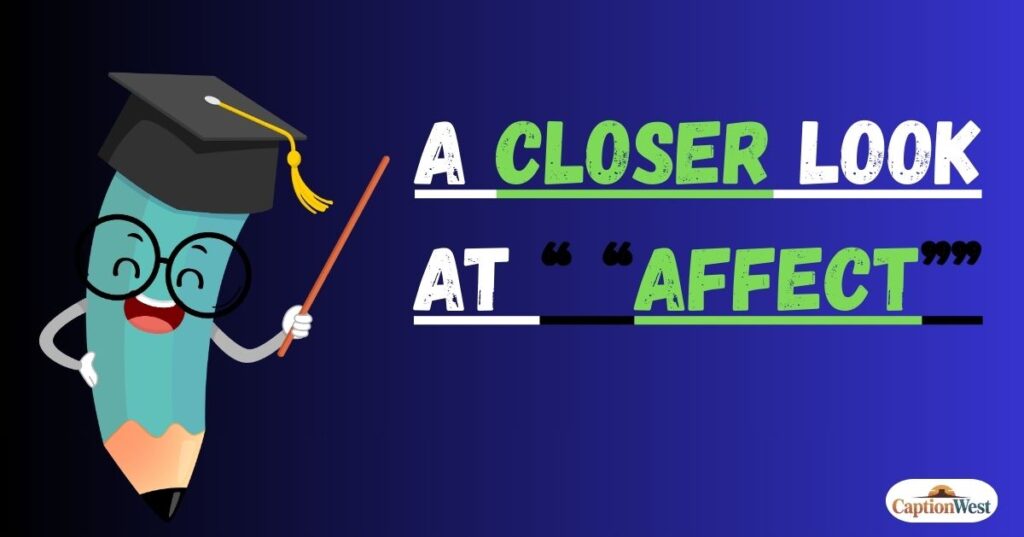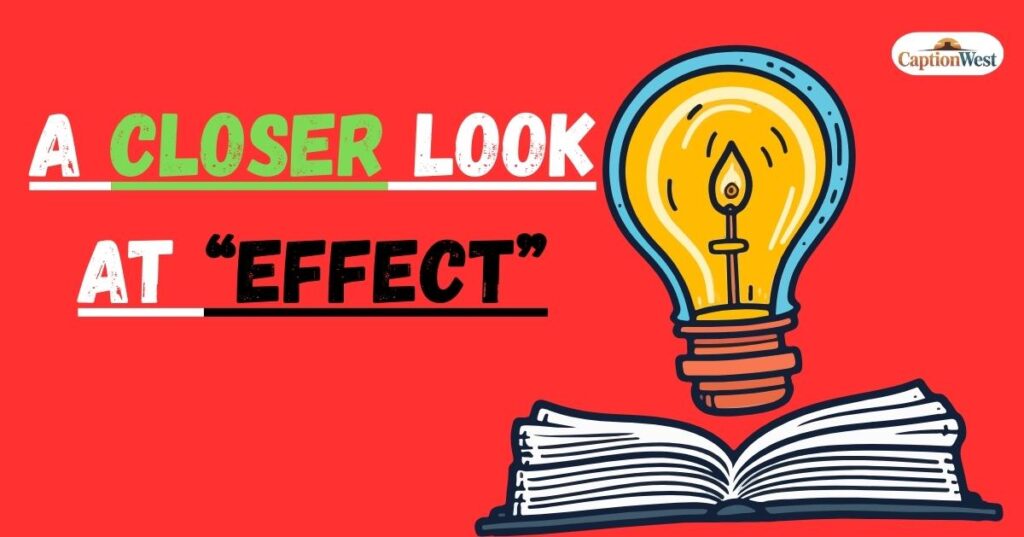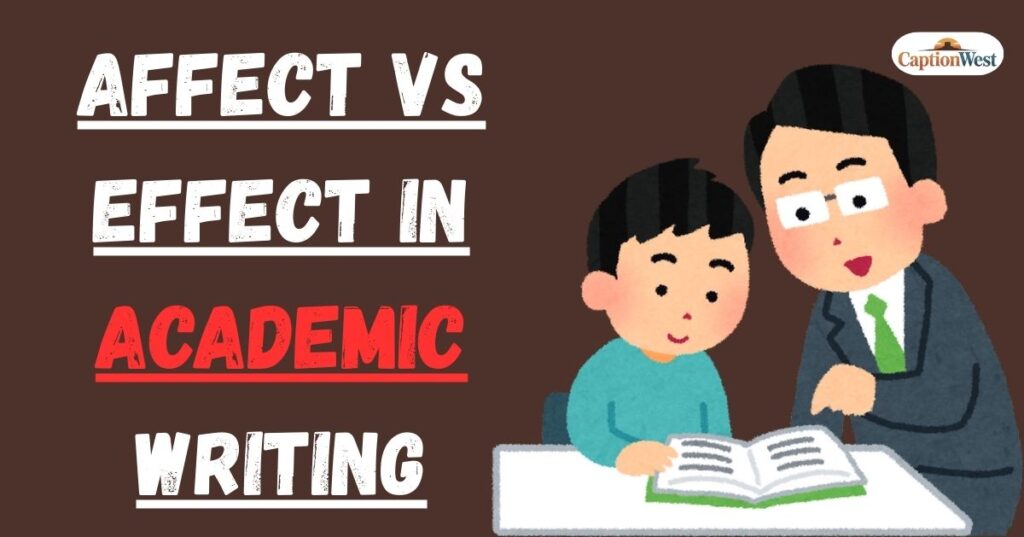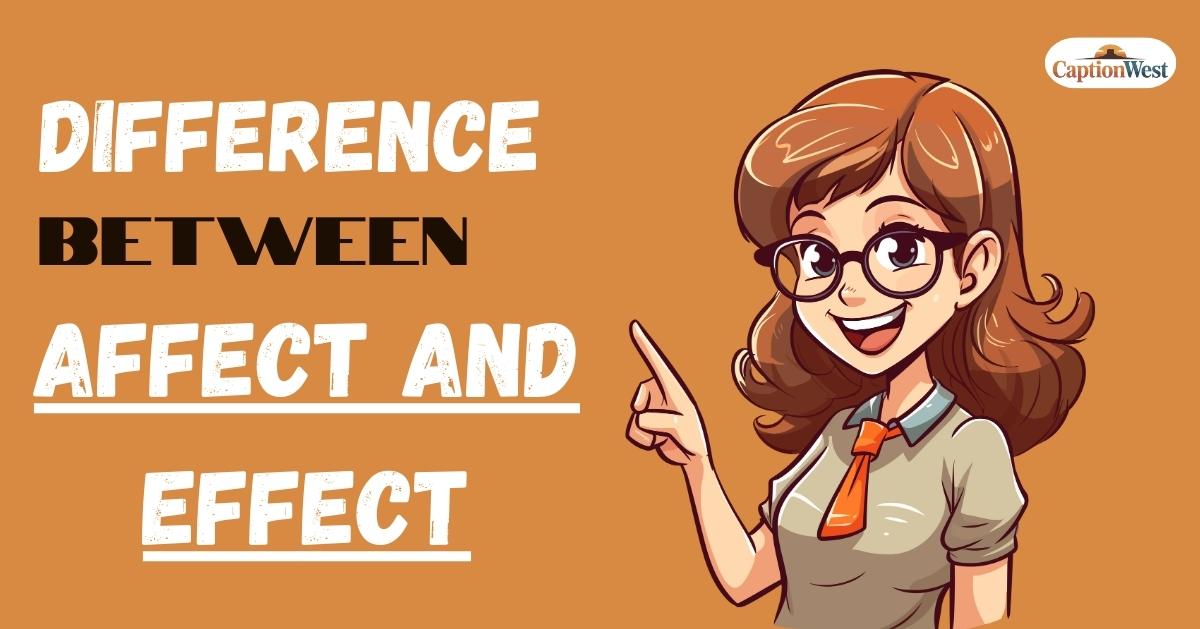If you’ve ever paused mid-sentence wondering whether to use affect or effect, you’re not alone. These two words confuse students, professionals, and even native English speakers. They look similar, sound similar, and often appear in related contexts. But here’s the good news: once you understand the difference between affect and effect, you’ll be able to use them correctly with confidence.
In this guide, we’ll break down the grammar, share easy examples, and even give you memory tricks like the famous RAVEN mnemonic to help you master affect vs effect. By the end, you’ll never second-guess yourself again.
What’s the Difference Between Affect and Effect?
At its simplest:
- Affect is usually a verb → it describes an action (to influence or change something).
- Effect is usually a noun → it describes a result (the outcome of an action).
✅ Quick example:
- The weather can affect your mood. (verb → action)
- The weather had a negative effect on the event. (noun → result)
So, if you think of affect as the action and effect as the end result, you’ll be correct most of the time.
A Closer Look at “Affect”

1. Affect as a Verb (most common)
In everyday English, affect means to influence, alter, or produce a change in something.
Examples:
- Loud noises can affect your hearing.
- The new teacher’s methods affected how students studied.
- Rain might affect our weekend picnic plans.
Here, affect is an action. Something is happening, and it causes change.
2. Affect in Emotional Contexts
Affect also means to move emotionally.
- The movie’s tragic ending deeply affected the audience.
- She was visibly affected by the news.
3. Rare Use: Affect as Pretend
Less commonly, affect can mean to put on a false display.
- He had a French accent.
- She affected my confidence though she was nervous.
4. Affect as a Noun in Psychology
In psychology, affect is a noun referring to an observable emotional state.
- The patient displayed a flat affect.
- His cheerful affect suggested recovery.
A Closer Look at “Effect”

1. Effect as a Noun (most common)
Most of the time, effect means a result or outcome.
Examples:
- Lack of sleep has negative effects on memory.
- The medicine had a calming effect.
- Global warming is causing serious effects on oceans.
2. Effect as a Verb (rare)
Occasionally, effect is a verb meaning to bring about or cause to happen.
- The manager effected several policy changes.
- The strike effected reform in the company.
This usage is less common but important to know.
Everyday Examples: Affect vs. Effect in Sentences
| Sentence | Correct Word | Why? |
| The loud music ______ my mood. | Affected | Action → verb |
| The new rule had a huge ______ on productivity. | Effect | Result → noun |
| The president’s speech ______ change in the system. | Effected | Rare verb (to cause) |
| The patient’s flat ______ worried the doctor. | Affect | Psychology noun |
Synonyms for Extra Clarity
Affect (verb): influence, sway, alter, modify, touch, stir
Effect (noun): result, outcome, consequence, impact, aftermath
Using synonyms can help you check which word fits best in a sentence.
Common Mistakes People Make
- ❌ The new policy had a positive affect on society.
✅ The new policy had a positive effect on society. - ❌ The cold weather effected her mood.
✅ The cold weather affected her mood. - Confusing rare uses of effect as a verb and affect as a noun. Remember, these are exceptions.
Easy Tricks to Remember the Difference
- RAVEN → Remember: Affect = Verb, Effect = Noun
- Think in cause-and-effect terms:
- Cause = Affect (verb)
- Result = Effect (noun)
- Cause = Affect (verb)
- Shortcut memory hack:
- “A for Action” → Affect
- “E for End result” → Effect
- “A for Action” → Affect
Affect vs. Effect in Academic Writing

Writers and students often lose marks because of this mix-up. Academic writing values precision, and the difference between affect and effect is essential in essays, reports, and research. For example:
- Psychology papers often discuss “emotional affect.”
- Science essays highlight “cause and effect.”
- Business reports note “the effect of policy changes.”
Using the right word strengthens credibility.
Affect vs. Effect: Quick Reference Table
| Word | Part of Speech | Meaning | Example |
| Affect | Verb | To influence/change | Stress can affect your health. |
| Affect | Noun (psychology) | Emotional response | The patient displayed a flat affect. |
| Effect | Noun | Result/outcome | The law had a strong effect. |
| Effect | Verb (rare) | To bring about | The strike effected change. |
Read Must : Difference Between Advise and Advice | Meaning, Definition & Examples
FAQs on Affect vs. Effect
Q1: Is affect always a verb?
Mostly yes, but in psychology, affect is a noun.
Q2: Can effect be a verb?
Yes, but rarely. It means “to cause something to happen.”
Q3: How can I easily remember the difference between affect and effect?
Use the RAVEN mnemonic: Affect = Verb, Effect = Noun.
Q4: What are some common examples of affect and effect?
- The news affected her deeply.
- The new law had a huge effect on businesses.
Q5: Which word is used in “cause and effect”?
Always effect because it refers to the result.
Conclusion
The difference between affect and effect boils down to action versus result. Affect is what you do, while effect is what happens as a result. Although rare exceptions exist, remembering the basics, and using tricks like RAVEN, will help you avoid confusion.
Next time you’re writing an email, essay, or social media post, you’ll know whether affect or effect is the right choice. Practice these examples, and you’ll master one of English’s most confusing word pairs.

